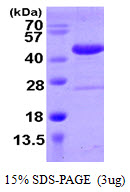order histories, retained contact details for faster checkout, review submissions, and special promotions.
Forgot password?
order histories, retained contact details for faster checkout, review submissions, and special promotions.
Locations
Orders Processing,
Shipping & Receiving,
Warehouse
2 Shaker Rd Suites
B001/B101
Shirley, MA 01464
Production Lab
Floor 6, Suite 620
20700 44th Avenue W
Lynnwood, WA 98036
Telephone Numbers
Tel: +1 (206) 374-1102
Fax: +1 (206) 577-4565
Contact Us
Additional Contact Details
order histories, retained contact details for faster checkout, review submissions, and special promotions.
Forgot password?
order histories, retained contact details for faster checkout, review submissions, and special promotions.
SPOP
speckle-type POZ protein
Component of a cullin-RING-based BCR (BTB-CUL3-RBX1) E3 ubiquitin-protein ligase complex that mediates the ubiquitination of target proteins, leading most often to their proteasomal degradation. In complex with CUL3, involved in ubiquitination and proteasomal degradation of BRMS1, DAXX, PDX1/IPF1, GLI2 and GLI3. In complex with CUL3, involved in ubiquitination of H2AFY and BMI1; this does not lead to their proteasomal degradation. Inhibits transcriptional activation of PDX1/IPF1 targets, such as insulin, by promoting PDX1/IPF1 degradation. The cullin-RING-based BCR (BTB-CUL3-RBX1) E3 ubiquitin-protein ligase complex containing homodimeric SPOP has higher ubiquitin ligase activity than the complex that contains the heterodimer formed by SPOP and SPOPL.
| Gene Name: | speckle-type POZ protein |
| Synonyms: | SPOP, BTBD32, HIB homolog 1, TEF2, Roadkill homolog 1, Speckle-type POZ protein |
| Target Sequences: | NP_003554.1 O43791 |
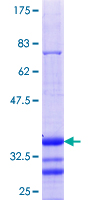
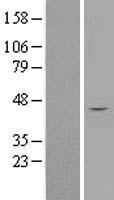
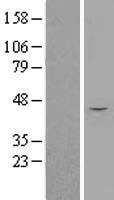


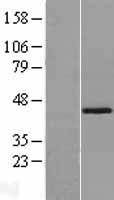

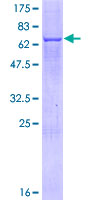
If you do not find the reagent or information you require, please contact Customer.Support@LSBio.com to inquire about additional products in development.

